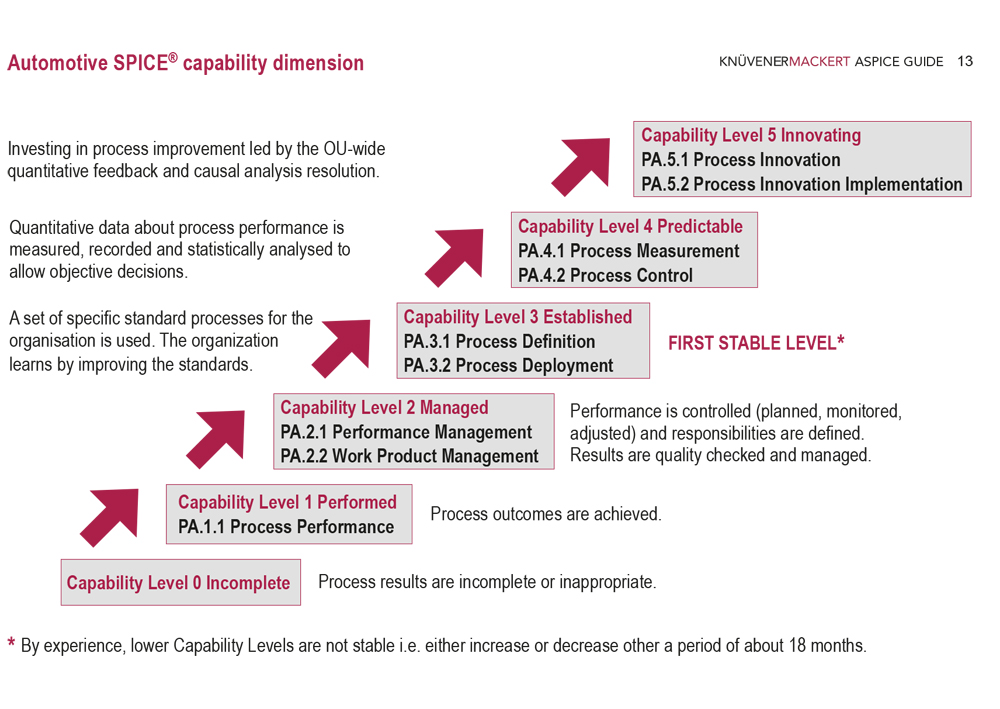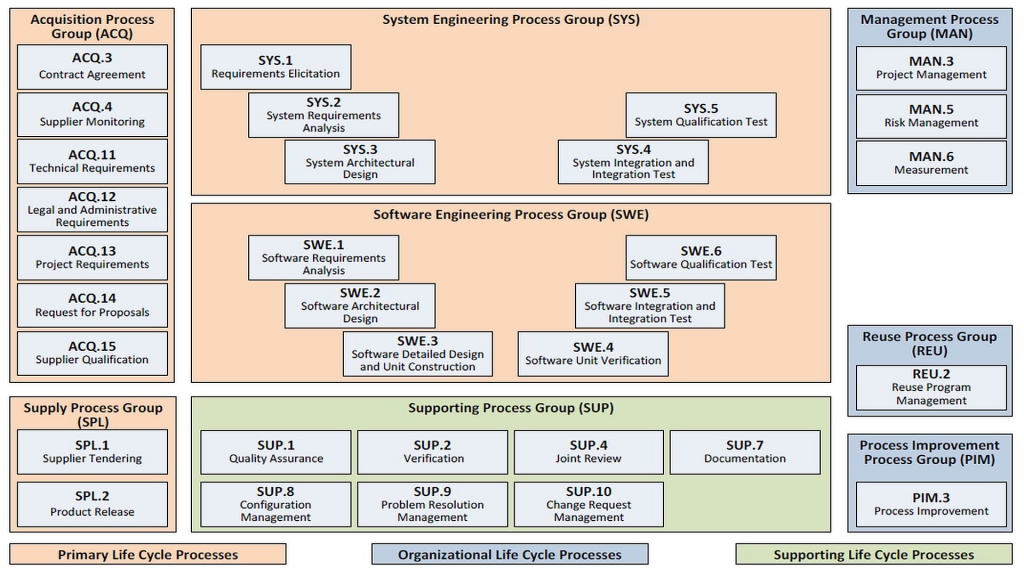Reference




OpenAI's Answer
Automotive SPICE (Software Process Improvement and Capability dEtermination) is a process assessment model specifically tailored for the automotive industry, and there are several key differences when compared to other process assessment models:
-
Industry-Specific Focus: Automotive SPICE is a domain-specific model derived from the ISO/IEC 15504 standard (SPICE), but it is designed to meet the particular needs and challenges of the automotive sector. This specificity allows it to address requirements and processes that are unique to automotive software and systems, unlike general models which cater to broader industries.
-
Two-Dimensional Framework: Automotive SPICE uses a two-dimensional framework consisting of a process dimension and a capability dimension. Capability levels range from 0 (incomplete processes) to 5 (optimized processes), and are assessed based on process attributes and maturity (source: UL Solutions).
-
Strict Evaluation Models: Automotive SPICE often incorporates models like the Verification and Validation (V-model), which mandates continuous evaluation and development to quickly identify and fix potential issues, ensuring high reliability and efficiency typical of automotive systems (source: Spyrosoft).
-
Capability Levels: Similar to models like CMMI, Automotive SPICE evaluates the capability of processes but does so with a focus on automotive standards and requirements. It includes detailed capability levels that ensure each process is not only executed but also managed, established, predictable, and optimized (source: UL Solutions).
-
Customary Requirements: The assessment scope in Automotive SPICE might be influenced by customer requests, aligning closely with specific project or client requirements, thus providing a tailored evaluation relevant to particular automotive projects (source: UL Solutions).
These elements root Automotive SPICE deeply in the automotive industry's needs, contrasting it from more generic process models that lack such specialization and strict adherence to industry-specific practices.